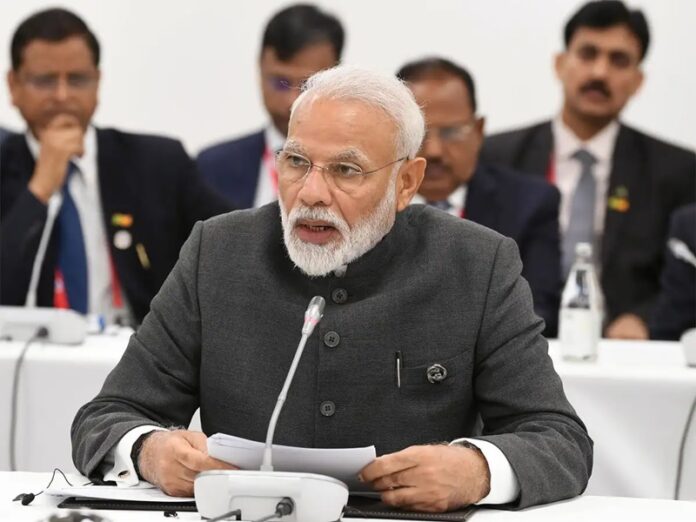As the Government of India under Prime Minister Narendra Modi commemorates 11 years of governance. It is important to recall an initiative that has catapulted the social sector in significant ways under the Government of India and financial regulators: the Social Stock Exchange. Credit is also due to Finance Minister Nirmala Sitharaman for elucidating this in her budget speech of 2019-20. The Social Stock Exchange has been in sync with the overall vision of taking capital markets to the public, the masses, the non-profit organisations in enabling grass roots empowerment thereby making it truly inclusive and diverse. The very inception of the social stock exchange is contributive to Prime Minister Narendra Modi’s famous dictum while serving as the Chief Minister of Gujarat that the ‘people should not come to the government, the government should instead go to the people’.
The social stock exchange truly enables outcome-based philanthropy. What is important to note is that the concept of a social stock exchange has not taken off successfully in several countries prior to India. But in India thanks to the steel willed focus of the Government of India under Prime Minister Narendra Modi, Finance Minister Nirmala Sitharaman, Securities and Exchange Board of India (SEBI) and the Market Infrastructure Institutions (MIIs) the initiative has truly been transformative for the benefit of the social sector. Today several countries have evinced interest in understanding the vision with which India has founded the social stock exchange under SEBI. Foreign missions in India want to know how it functions and why it does what it does. Goes without saying, it has enabled trust, transparency and efficiency. India under Prime Minister Modi has achieved what possibly other countries could not do that is to create a functional transparent fund-raising platform that enables outcome-based philanthropy. This is not to state that the electronic fund-raising platform has reached its pinnacle. Needless to state there is much more progress to be made. The different offerings on the platform through development impact bonds, outcome-based funding is in the offing pending the regulator SEBI’s approval. The Government of India’s foresight and commitment to the initiative has to be commended because the social stock exchange is not a stand-alone initiative but is integrated into robust stock exchanges that is already functioning. It slowly but surely allows retail investors to contribute to social causes, be aware of how their funds are utilized and the particular social cause to which they are intending to support. The alignment with the United Nations Sustainable Development Goals (UN SDGs) is also testament to the fact that India is serious about aligning domestic policy goals to overarching UN SDGs.
At the National Stock Exchange’ Social Stock Exchange (NSE-SSE) alone, over 135 NPOs (Non Profit Organizations) have been registered with over 14 successfully listed projects that have raised over USD 5 million dollars in total across several developmental sectors like education, health care, climate action, rural development, skilling and employment to name a few. NPOs who work directly with socially disadvantaged and marginalized sections of society are empowered through NSE-SSE. Recently, NSE-SSE witnessed its largest project fund raising of over 18 crores by Prashanti Balamanidra Trust. This listing of the project brought together the highest number of donors (over 200) which is a significant step towards democratizing philanthropy on NSE-SSE platform. NSE-SSE has directly and indirectly contributed to the UN SDGs.
Speaking of the timeline of the Social Stock Exchange, July 2019 Finance Minister Nirmala Sitharaman spelt out the vision of the SSE by stating that the vision behind the SSE is to “take the capital markets closer to the masses and meet various social welfare objectives related to inclusive growth and financial inclusion”. SEBI has been proactive by forming a working group on the same by September 2019, by June 2020 the working group report was uploaded by SEBI for public comments, in September 2020 a technical group was formed by SEBI, May 2021 a report was given by the technical group which was followed by a detailed SSE framework instituted by SEBI in 2022 and in the same year in October the SSE Governing Council was formed. February 2023, NSE-SSE got its approval and the first registration of an NPO was in April 2023. The same year in 2023, August DFRD (Draft Fund-Raising Document) of the NPO was filed and in September 2023 the first in-principal approval was given and in the same year in 2023, first listing of the NPO was done.
Tremendous amount of work has been put in by NSE-SSE to reach various parts of India through the time tested last 3 feet communication to engage with non-profit organizations (NPOs) and relevant stakeholders. This has primarily been to explain to them the significance of the platform. The keenness on the part of NPOs to listen, imbibe, question, understand and see how best they could fit into the criteria to register themselves first on NSE-SSE has also been overwhelming. It is only testament to the fact that NPOs want to be accountable yet play a substantive role in eliminating challenges in front of India. Extensive seminars have been held in Kochi, Hyderabad, and in districts like Varanasi, Patna, Ranchi and Lucknow where the response to understand why the social stock exchange speaks volumes of how much the NPO founders want to understand this even from remotest parts of India to be part of a transparent fund-raising mechanism.
NSE today has 11.5 crore investors that constitutes 20% of Indian households across 99.9% of pin codes. Therefore, the scope of enabling e-IPO via UPI and ASBA (Application Supported by Blocked Amount) to all its retail investors to be an integral part of the developmental journey of India through NSE-SSE is immense. Even if some of them donate on the platform, the potential is huge. In other words, just like how one orders food through food apps, just with a click of a button, people from different parts of India can participate in the Viksit Bharat journey by enabling developmental goals of the country.
All grassroots organizations are increasingly understanding the importance of showing impact and how this can enable funding for their projects going forward. The return on investment here is the impact. While several achievements of the Government of India under PM Modi are being recounted, it is worth mentioning the effort taking by the MIIs under SEBI to enable the Social Stock Exchange. “I think what [the] National Stock Exchange and SEBI have done here with this one is they’ve created a very credible system, because one of the key things when you want to give back is credibility and impact,” said the famed Ronnie Screwvala on NSE-SSE. There cannot be a better way to put the SSE. Here is to many more years of the real, credible India contributing.
(Author is policy specialist and author and is with the NSE. Views expressed are his own)
Non-Confidential)








